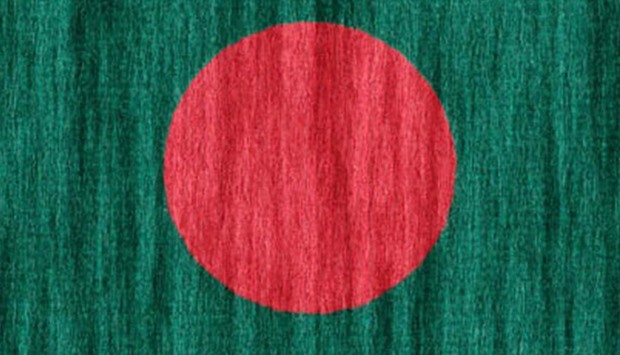Bangladesh police said yesterday they had arrested a man suspected of killing the wife of an anti-terrorism police officer, just weeks after she was stabbed and shot in the southeastern city of Chittagong.
The murder, initially blamed on Islamist militants, raised tension in the Muslim-majority country, which is reeling from a wave of killings of secular activists, religious minorities and foreigners in recent months.
Chittagong police chief Iqbal Bahar told reporters that officers detained Wasim, who uses one name, on the outskirts of the city on Saturday and he had admitted his role in the killing.
“We suspect Wasim as the main killer who stabbed and shot dead Mahmuda (Begum),” Bahar said, referring to the wife of top Chittagong anti-terrorism police officer Babul Akter.
“Wasim is a professional killer. During interrogation, he admitted his involvement in the murder. But we could not know whether he is linked with any militant outfit,” Bahar said, adding one of his associates who was involved in the killing was also arrested.
Police had suspected homegrown Islamist militants for the murder, after Akter led several high-profile operations against the banned Jamayetul Mujahideen Bangladesh (JMB) militant group in the southeastern city in recent months.
In October last year Akter and his team arrested top JMB militant Mohammad Javed along with four others and seized a huge cache of explosives from their hideout, according to police.
Javed was later killed by a grenade during a police raid on another JMB hideout, to which he was brought along as an informant.
Three unidentified men stabbed and then shot Mahmuda Begum in the head as she walked her son to a school bus stop near her home on June 5.
The murder is said to have prompted a huge nationwide crackdown on suspected militants, leading to the arrest of more than 11,000 people including nearly 200 suspected jihadists.
Police say nearly 50 people have been killed by homegrown Islamists in the past three years, with a spike in attacks in recent weeks.
International jihadists such as the Islamic State organisation and Al Qaeda’s South Asia wing have claimed responsibility for most of the murders, but authorities deny these groups are present in the country.
Bangladesh’s secular government instead blames local opponents.
Experts say a government crackdown on opponents, including banning the largest Islamist party following a protracted political crisis, has pushed many towards extremism.

BANGLADESH
